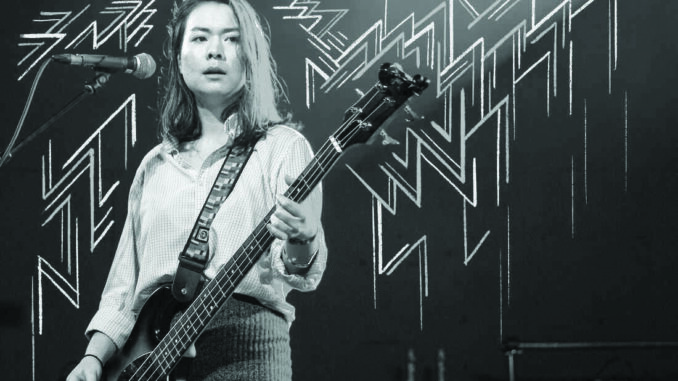
REVIEW
By ANDREW TERRY
Staff Reporter
Mitski is back after her four-year-long hiatus with her sixth album titled “Laurel Hell.” She describes the album as a “a map to the place where vulnerability and resilience, sorrow and delight, error and transcendence can all sit within our humanity” and she doesn’t disappoint.
The album doesn’t sound like typical indie rock. It embraces electronic synth and industrial percussion. It also takes influences from disco and dance music of the 80s, but with modern twists. Despite the new glossy pop sound, Mitski still manages to hold on to her signature vocal style and her signature brevity with a runtime of only 32 minutes.
Mitski has said that she “needed love songs about real relationships that are not power struggles to be won or lost,” and she absolutely succeeds. The Elton John-like “Should’ve Been Me” describes the complex mix of jealousy, regret and leftover longing that comes when a relationship ends.
In “The Only Heartbreaker,” she sings about how it feels to be falling out of love with someone despite them doing absolutely nothing wrong. All the songs about love on “Laurel Hell” are refreshingly complex and don’t leave you with a clean and happy ending that mimics how it feels to lose someone and still love them.
The album is also partially self-reflection. In “Working for the Knife,” a track filled with industrial percussion blended with guitar and horns, she describes her feelings of being trapped in a music industry where she has to make music that sells instead of the music she wants to make. She ends the song resigned to her fate “I start the day lying and end with the truth that I’m dying for the knife.” In “Everyone,” a slow ABBA inspired song, Mitski sings about the pressures to conform, “Sometimes, I think I am free until I find I’m back in line again.” Mitski does not wallow in what she finds, but she doesn’t revel in herself either. She finds who she is and chooses to simply exist as herself.
The album refuses to settle on one type of sound, instead it inhabits the space all-around synth pop, disco and indie rock. Mitski takes cues from ABBA and Elton John, but she refuses to commit to any one influence, and I love it.
The differences aren’t drastic enough to shock the audience, but it gives a sense of an uncomfortable existence that changes between sounds to try and find something that ‘fits,’ but can never find it. Mitski wanted to “sit in the gray area” in this album and she makes us sit with her and forces us to confront the uncomfortable middle areas of life.

Leave a Reply